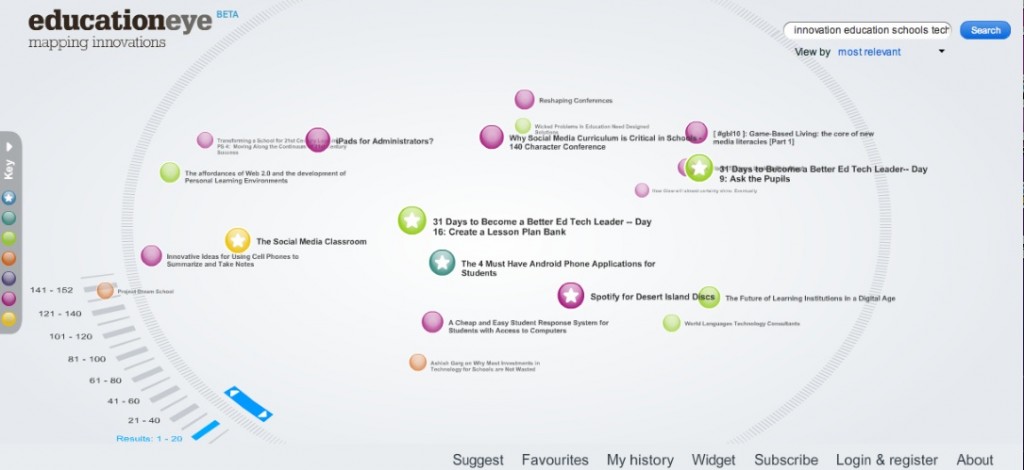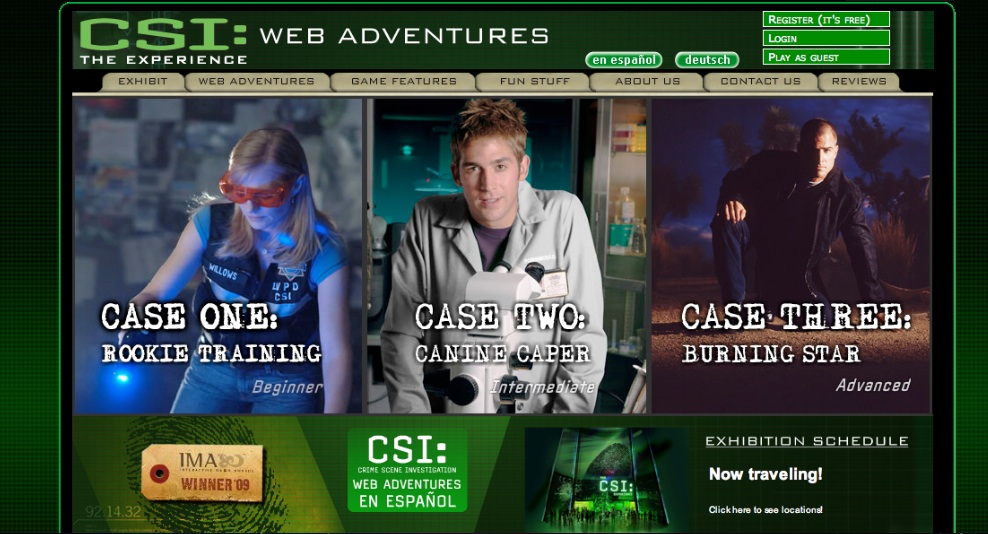Kew’s Methodist Ladies’ College have kindly shared information on their Literature Club.
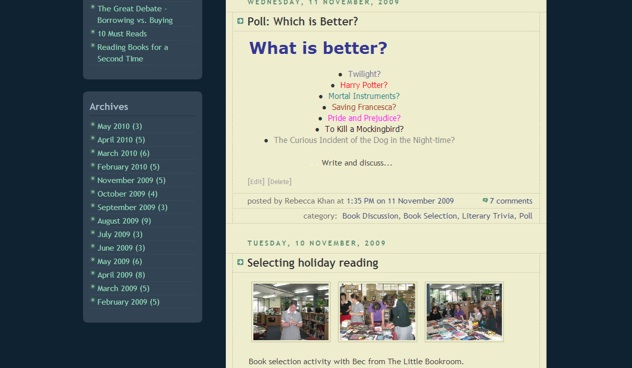
No link as the blog is on the school intranet
Robin Anderson, Literature Club Coordinator and Jane Viner, Director of MLC Libraries explain:
MLC Lit Club is a group of Year 7 – 12 students who meet weekly to share a love and appreciation of literature. As a teacher librarian part of my role is to coordinate these weekly sessions, organise activities and encourage student participation and membership. Before establishing a blog for the MLC Literature Club in 2009, I worked with a learning technology liaison teacher for two sessions. I needed to understand the concept of blogging and how to set up and maintain a blog as part of the mymlc website. Previously the Lit Club members had access to a discussion forum which is part of Educate, an online curriculum delivery software program.
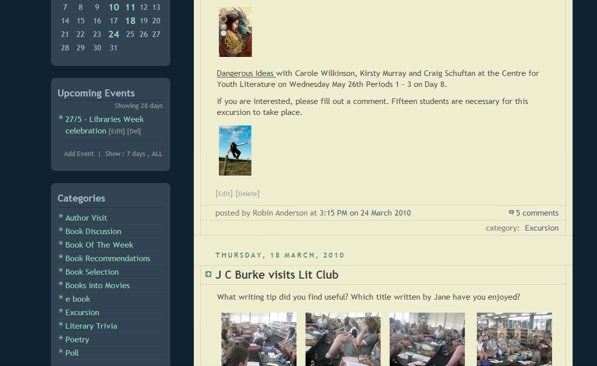
No link as the blog is on the school intranet
Lit Club students from Years 7 to 12 have posting rights on the blog and student posts have not so far needed to be edited. Bloggers review/discuss particular authors (Agatha Christie), titles (“Twilight”), favourite picture books (“The Very Hungry Caterpillar), conduct polls… We also record, with appropriate photos, special events for example author visits, book selection activities, excursions and joint meetings with other schools. Students are encouraged to continue discussions online about a topic of interest arising at the weekly meeting. Teacher librarians also form part of the Lit Club blog audience and there is a link from the Library homepage to our blog.
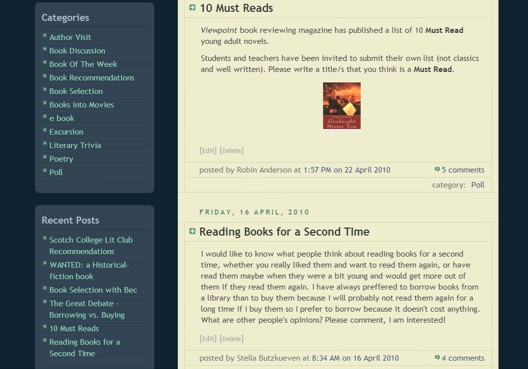
No link as the blog is on the school intranet
It certainly sounds like the students are enjoying their involvement with the Lit Club blog. Being able to share and discuss thoughts and views and write to an audience is a real attraction for students, while honing writing and communication skills. An excellent resource!

